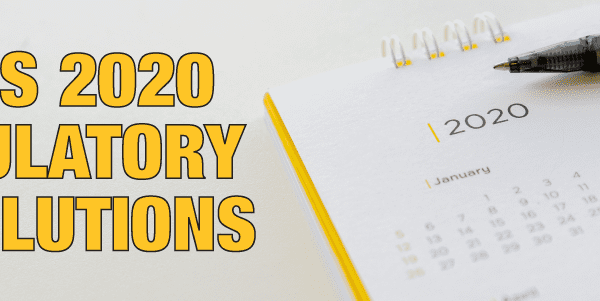When I speak to people about Comprehensive Emergency Management (CEM) – otherwise referred to as Crisis Management – I explain that it is an approach based on a concept that one must do more than simply respond to emergencies, that the only way to effectively manage emergencies is to plan to prevent, prepare for, respond to, and recover from emergencies. Prevention is an actual and integral part of a CEM policy and is the highest order of the day, every day. The concept of prevention is not new and has been with us for some time. We’re all familiar with the famous idiom “An ounce of prevention is worth a pound of cure.” When Benjamin Franklin spoke these words of his wisdom, he was referring to the prevention of disease and sickness. Today, this expression means that it is better to try to avoid problems in the first place rather than trying to fix them once they arise.
Why these good words of advice go too often unheeded is troublesome, especially when we should be paying more attention to preventive measures more than ever. According to Harvard Business Essentials “Crisis Management, Master the Skills to Prevent Disasters”, possible explanations include underestimating the problem, hubris, and failing to connect the dots. Underestimation is the result of failure to perform a risk audit, whereby potential crises and its sources are identified then prioritized in terms of their probability of occurrence, and areas of greatest vulnerability. Hubris is excessive pride that encourages self-satisfaction and an air of invulnerability, often blinding people to the signs of pending trouble. “Failing to connect the dots” is an expression used to describe the failure to connect separate pieces of intelligence into a coherent picture and foresee a developing crisis.
From Benjamin Franklin’s time to our present, the notion of taking preventive measures has gone by the wayside for the predominant persistent theme – our quest for freedom from dependence, restraints, and external control. Along the way we have confronted the forces that diminish our potential. Our conquest over the creatures and physical matter of the earth was developed and refined because it helped us survive the demands of a hostile environment through better prediction and control. Paradoxically the very attributes that made possible our greatest achievements for such beautiful dreams also, when misused, can cause the greatest misery for such horrible nightmares.
As consequence of mankind’s exploitation and domination over this planet, the 21st century ushered in a new era of declines in a number of crucial areas: • Global oil, natural gas and coal extraction • Availability of fresh water • Yearly grain harvests • Economic growth • Extraction rates for minerals and ores • Climate stability
These signs should remind us how we are occupants of a fragile planetary ecosystem that is showing severe signs of strain from the exponential growth of the human population. The pollution of air, water and soil is dangerously eroding our environmental resources, threatening the life-support system on which we all depend. Over two hundred years of burning fossil fuels, with our continual ideal of continuously increasing fossil fuels consumption, is adding to the problem of global warming. We have failed to connect these dots and have now passed the era of cheap fossil fuels as reserves and supplies dwindle and maintaining current production rates has become increasingly difficult and expensive.
In our modern technological society, we depend on a multitude of independent, centralized and complex systems that form a vast, fragile web. Our homes and businesses are umbilical connected to a network of cables that extend from the utility companies we depend on for a continuous supply of electricity, telephone, television and internet communications. Electricity is our premium form of clean energy, a proven and reliable technological achievement at work in thousands of diverse applications, providing comfort and convenience without environmental degradation. If it is too cold we just turn up the thermostat. If it is too hot we turn on the air conditioner. We can have dinner on the table in minutes thanks to the microwave oven. In our five-cycle automatic washer we can launder our latest fashions with the newest super strength detergents. By merely flicking a switch we light up the room. And thanks to high-tech we can listen to music or a concert in stereo, watch movies in three dimensions or the evening news live, in color, from half way around the world.
For most of us, in our convenient lifestyles, electricity is an intangible abstraction; something difficult to define and not well understood. With the sophistication of our technologies, we have become addicted to the raptures of sanitized infotainment that serves well to distract us from conscious awareness to the current state of our real world. We have evolved as diversified humanity with all its limitless motives for behavior, comfortably conducting our daily routines in a sleepwalk of dangerous complacency, oblivious to how we are propelling ourselves into a future of not so unchartered territory where we should reasonably foresee fierce competition for alternative energy resources, food and shelter to become the vicissitudes that we ought to be prepared to face.
Because of global warming and dwindling natural resources, we will soon experience environmental and resource instabilities causing multiple synergistic problems, perhaps occurring simultaneously. The majority of us receive our electricity from the conventional centralized systems of generation and delivery that operate with the intractable environmental drawbacks of coal, oil, natural gas and nuclear energy. These centralized services will be plagued with unpredictable shortages followed by temporary surpluses. Also, the centralized electricity generation and distribution system’s equipment and facilities are physically vulnerable to a variety of natural and manmade events. We can reasonably expect a range of local interruptions, to epochal scale failures in the central technological services that we have come to rely on for our daily sustenance and commerce. The consequences will be felt by each of us in varying degrees and circumstances.
The good news is, the impacts and effects of these natural and technological crises will have on us can be reduced. We must first end our lethargy, consciously choose between exploitation or stewardship; devastation or sustainability. Future survival depends on how well we accept and adapt to current trends and conditions, take the initial steps to proactively prepare for plausible technological interruptions, and adopt the ideals of voluntary reduction of consumption and self-sufficiency – personal autonomy with little, or no, technological conveniences from outside of what is produced by the self-sufficient individual independent of state subsidies. Only after we accept a sustainable future as the only viable option, face the challenges ahead and significant changes in lifestyle with conviction, and make the commitment to prepare, then we will have taken the first steps and moral responsibility to provide for individual and family’s future needs. This is “Provident Living in a Technological World”.
Central to Provident Living in a Technological World is sustainability, self-sufficiency, reclamation and assertion of the individual’s birthright of conscious awareness and free will. Prevention planning begins with personal behavioral readjustments. The modern individual will need to muster courage to reconcile his cognitive dissonances, assume responsibility to question the assumptions of the operant societal worldview rather than just blindly living life in submissive accordance with dominant, outdated norms and geriatric assumptions. Only then the individual will overcome his state of despondence, break out of societal paradigm paralysis and confront the current state of the real world with strict application of the consumer conservation ethic to reduce consumption, increase recycling and reuse of material resources and products, rethink how to restore compostable organic waste back into the soil, how to recover energy from existing flows of energy, or how to capture energy from renewable energy sources.
The end of cheap fossil fuels will fundamentally alter the terms and conditions of everyday life in technological society. It’s difficult to perceive for most of us since it challenges common beliefs built on cognitive conditioning to accept cornucopian patterns of exponential growth as being normal. Unfortunately, whether we like it or not, we are governed by laws of nature that have finite limits. And for some, cognitive dissonance and accepting this truth of reality is a painful awakening, though the history lessons are clear.
Science and the free market will not automatically produce technological solutions to our world energy and environmental problems. And we cannot continue to rely on reactive politics and technological breakthroughs to bail us out. A wiser “Benjamin Franklin type” approach is to evaluate current trends and conditions proactively, and develop plans for attaining a positive, sustainable future. In the event of a breakdown in the centralized systems that we rely on for our daily needs and comforts, a working knowledge of our ancestors’ technologies will go a long way toward helping us to live a comfortable life, though most of us would not willingly give up our modern conveniences for a return to the hunter-gatherer lifestyle of our ancestors. Fact is, each and every one of us must plan for lifestyle change and determine the best resources for accomplishing our personal goals. Provident Living in a Technological World means using the best of modern technology combined with old-fashioned self-reliance can provide for a comfortable and sustainable lifestyle. We just need to decide which technologies should be preserved as we descend to low energy living.






 ICC USA
ICC USA ICC Canada
ICC Canada
When I speak to people about Comprehensive Emergency Management (CEM)